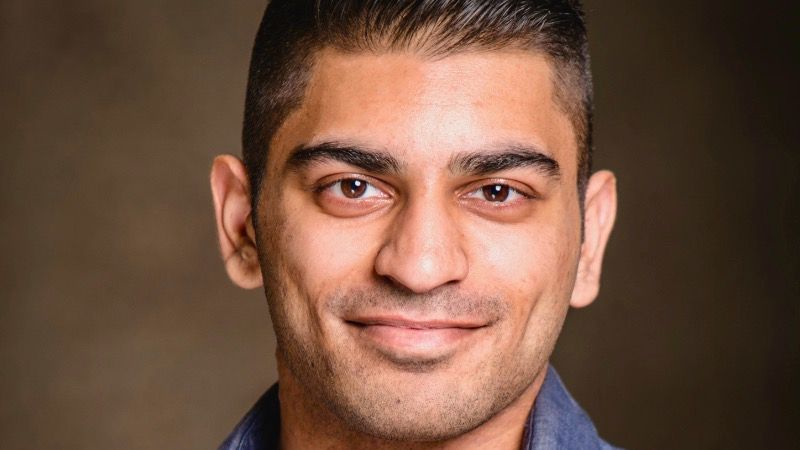ORANGE COUNTY, Calif. — Ajay Mohan has plans.
The newly installed executive director of the Democratic Party of Orange County is also its youngest ever to serve. He has already embarked on a key goal of his appointment: Build a stockpile of future candidates. Along with other party leaders, he has put together a new training program for those interested in running for office as Democrats.
They’ve called it Blue U, a 15-week course run through Zoom on Saturdays. An offshoot of other programs created by Democrats, Blue U aims to teach its students everything a winning candidate needs to know. The inaugural class, which has about 30 students, will learn everything from campaign finance to managing donors. They’ll learn how to be the candidate or advise one.
Mohan’s goal isn’t just to develop good politicians but also a deep roster of savvy political minds who can help hold seats or flip new ones.
“We look at it as building the bench,” Mohan said. “We’re prepping our candidates to win their races and win them handily.”
The 24-year-old has helped make inroads into Orange County’s broad and disparate communities. Mohan, the party's first Indian-American to serve as executive director, leads many of the workshops. He’ll teach students what a campaign budget is supposed to look like and identify cash flow sources and how to keep the coffers full from beginning to end.
The county, long a Republican stronghold, has undergone a transformation. It went blue for the first time in the 2018 midterms, a sign of progress to the party but not a total transformation to Democratic party ideas. Democrats took the high profile seats in the U.S. House of Representatives, grabbed national headlines, and popped up in talking points on prime-time TV shows. But Republicans held onto majorities in a large number of city councils in Orange County, important seats of government that often have more direct sway over people’s day-to-day lives.
Democrats just took the coveted 2nd District Supervisor’s seat in a March 9 special election. Katrina Foley, mayor of Costa Mesa, will take the seat after defeating John Moorlach, the Republican-endorsed candidate. Her victory was, in part, the result of internecine strife in the Orange County GOP that resulted in three conservatives running for the same seat.
Democrats seized an opportunity, and Blue U is about building a pool of candidates to take advantage of other openings. Mohan explained how 200 Democrats ran in 2020, and 96 were endorsed. While Democrats lost two seats in the House, they gained seven mayor’s seats in the county.
Perhaps its biggest star is U.S. Rep. Katie Porter (CA-45), a favorite of late-night shows who threw her weight around in the last election. She endorsed new Irvine Mayor Farah Khan and a spate of other candidates around the nation.
Republicans don’t have a local program but run candidates through a state-run course.
Cities have strong influence over decision-making. While Congress has had lengthy debates on coronavirus stimulus packages fought over by senators from distant states, Irvine has been able to move quickly. It enacted a $4 “Hero Pay” increase for grocery store workers. It has also made strides in clean energy, a long argued over topic in national politics.
One student in the first class has her eye on local change. Kathleen Treseder, a UC Irvine professor of ecology, has specialized in how climate change affects her field. When the Trump administration chose to exit the Paris Climate Agreement, Treseder decided to take what she’d written about in scholarly journals to local politicians. With the international relationship void, Treseder focused on local outreach.
"I’m a scientist," she said. "I know what’s going to happen and obviously my message isn’t getting out the way I'm doing."
Treseder has the basics, as she explained, but needs to learn how to step out of her role as an academic and meet voters on their own ground.
"The public doesn’t want to look at a graph. They want to hear a story about how renewable energy affects them."
Treseder plans to run for the Irvine city council, and although she’s still learning, she has already been preparing. She received training from Emerge California and has navigated the rock shoals of big-time university politics.
When she served as chair of the UCI Department of Ecology and Evolutionary Biology, Treseder presided over a messy, highly public ouster of a professor accused of sexual harassment. As chair, she collected claims against the world-famous evolutionary geneticist Francisco Ayal and sent them up the chain.
“It cost me a lot, and it cost my family a lot,” she said.
Treseder has since resigned from her post as chair but continues to teach at the university. She has found a way to impact policy on the local level, a start she hopes can lead to broader change.
"The president isn’t coming in and helping us convert to renewable energy but the city councilmembers are."



